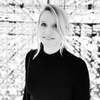Dr. H B Gelatt is an expert in decision-making. Most notably, he is the creator of Positive Uncertainty, a philosophy of creative decision-making in uncertain times. His educational background includes doctoral and master’s degrees in counseling psychology from Stanford University and a bachelor’s degree in psychology from San Jose State University. In our interview, Gelatt shares his ideas on navigating today’s global crisis by challenging our convictions.
Please note: This post is a repost from our archives in remembrance of Dr. H B Gelatt, who passed in June 2021 at the age of 94. Originally published in April 2020, we highlight this in-depth interview once more as its content is still timely and relevant today. We also recommend visiting H B Gelatt’s blog to learn more about the concept of Positive Uncertainty.
Why do we need to be positive about uncertainty?
H B Gelatt: We have a choice — let the uncertainty immobilize us or accept its reality and see the opportunity in it. Now more than ever, we need to intentionally pay attention to what we see and believe and, therefore, how we behave. Know what you want and believe, but don’t be too sure. Beware of your dogma. Dogma is popular, but doubt can be practical and beneficial. Certainty is what makes you comfortable; uncertainty is what makes you creative. Not knowing is now considered the norm.
What human traits are most important to create a positive future, and why?
Rather than traits, I would suggest we consider what beliefs are most important to create a positive future. Better views are tentative, hypotheses open to examination, and not divisive. It’s important to be aware of our beliefs and question them. It isn’t a crime to change your mind. Open-mindedness is the best teacher because an open mind is receptive to new and different ideas. A closed mind eliminates learning. Have the courage to challenge your convictions. Change happens to you, and change happens by you. Changing your view changes you. The COVID-19 global crisis presents both the challenge and opportunity to question our ideas about the future, expand our thinking about possibilities, find meaning from this crisis, and collectively envision a better future.
“The whole problem with the world is that fools and fanatics are always so certain of themselves, and wiser people so full of doubts,” is a famous quote by the philosopher Bertrand Russell that addresses uncertainty. Still, society thinks of doubt as something negative. Why?
The desire to be sure is popular, but it also indicates closed-mindedness and an inability to learn — whether about COVID-19, future options, or the roads we might travel as we emerge from this crisis. Doubt, on the other hand, is not well-liked; it has a bad reputation. Doubt and its synonyms — uncertainty, wonder, and skepticism — make people apprehensive, even fearful. Doubt is not disapproval, and it is not approval; it is a maybe. Doubt doesn’t reject; it poses questions. Consider What else I might do to stay safe and healthy? How might I look at information today given there is so much, and it often changes? What practices (maybe even new habits) might I put in place to keep my head and heart open during uncertainty? What are the possibilities for how I might live my life once the crisis ends? What might my new normal be, and not be? If the wonder of doubt could become widespread, maybe so would uncertainty. And maybe positive uncertainty would become the norm, and anyone could learn new tricks.
What advice can you give people who are feeling overwhelmed and immobilized by the current situation?
I have three suggestions that may help: First, we should embrace one of Stephen Covey’s principles, which is about putting first things first.
Putting first things first means organizing and executing around your priorities. It is living and being driven by the principles you value most, not by the agendas and forces surrounding you.
— Dr. Stephen Covey
Consider looking at the situation and do what is most urgent and important that day. In the early weeks of the crisis that meant quickly deciding to believe the public health and infectious disease experts that the best practices to flatten the curve of the disease spread were social distancing and sheltering at home. Now that we are in the midst of this “new normal” with no end in sight, it’s important to continue believing in these practices, deciding every day to behave accordingly.
Second has to do with information coming at us 24 hours a day, seven days a week. While I believe it is vital to watch the news with an open mind, during this crisis, we need to limit how much information we take in. The constant, repetitive, and changing information from countless sources from all over the world about COVID-19 can become debilitating. We should consider limiting how much time we spend reading, listening to, and talking about the crisis.
Third, is to be kind to ourselves. Take time to consider what is overwhelming and paralyzing. Then be realistic because we cannot do everything. We have to intentionally and continually make decisions about what we can do and what we cannot do.
What measures can everyone take to make social isolation more bearable for themselves?
Seek out moments of joy and use technology to strengthen social connections daily. This might also be a good time to think about the meaning of life and discuss it with others. I recently wrote about following Viktor Frankl's advice to find meaning in our lives. The meaningfulness occurs while we are seeking it as we live life. Different meaningfulness can occur daily. Searching for purpose is an ongoing process, without beginning or end, even during this crisis. Staying at home is now part of the journey. Viktor E. Frankl probably wrote the most famous quote about meaning, which he did while held in a concentration camp.
The meaning of life differs from man to man, from day to day and from hour to hour. One should not search for an abstract meaning of life. Everyone has his own specific vocation or mission in life to carry out a concrete assignment that demands fulfillment. Therein he cannot be replaced, nor can his life be repeated.”
Viktor E. Frankl
Some people are hoarding groceries, and others offer neighbors everyday errands. Do events like Corona bring society closer together, or do people in potentially threatening situations tend to be selfish?
Crises bring out the best in many people and the worst in others. It all comes down to what people believe. For me, beliefs are the cause and effect of human history. They lead to positive and negative consequences for the believers and others. I think it is impossible to over-emphasize their importance. I find it helpful to keep in mind what Mahatma Gandhi said:
Your beliefs become your thoughts, your thoughts become your words, your words become your actions, your actions become your habits, your habits become your values, your values become your destiny.
Corporate leaders have to navigate through the corona crisis with more uncertainty than ever before, making complex business decisions without having much time to contemplate. What strategies can you recommend to facilitate the decision-making process?
In my Positive Uncertainty blog Crisis and Connectedness, I shared that it takes a whole connected village to raise a child and to solve a crisis. Connectedness requires compassion, open-mindedness, and open-heartedness. These are the new symbols of leadership competence today. Can you imagine countries, towns, and organizations where all of us are connected and compassionate?
Compassion, of course, involves a sensitivity to self, to others and the environment. Doesn’t this sound like open-heartedness? One of the most relevant lessons of chaos theory was the concept that everything is interconnected to everything else in an unbroken wholeness. It is the notion of total connected, everything else, and unbroken wholeness that is powerful — and seemingly incomprehensible. Accepting it is one thing, understanding it is another and applying it is something else. We are all connected, but we don’t understand most connections.
Today’s crisis helps explain to us our interconnections. We need to keep our physical connections six feet apart to solve our crisis. This does not eliminate social connectedness. What is happening to you is happening to everyone else. Being forced to modify our connections reminds us of how connected we are inside organizations, with our customers and in the communities we reside in. We need to do unto others what they need to do unto us, to save all of us.
Without an open mind, there is no creativity, and without an open heart, there is no compassion. Compassion is needed when we don’t know all the interconnections to other humans. Creativity is required when we don’t understand all the interconnections of everything else. Creativity suggests open-mindedness, and compassion suggests open-heartedness. Compassion excludes the possibility of being exclusive, unconnected, which is a place of danger for any organization, leader, employee, board member, customer, and shareholder. We see connections inside and outside; being compassionate, not self-focused, and being open, not closed-minded, set the stage for leaders making decisions to create a positive future for the short and long term.
How can we overcome negative beliefs and mindsets to create a positive future?
Believing that influencing the future is possible requires three beliefs about the future: First, the future is not predetermined; Second, the future is not predictable. And Third, the future is persuadable. The third belief is necessary. And the third belief is only valid if we believe the first two. If we think the future is predetermined, then it is not persuadable because it has already been determined. If one considers the future is predictable, it can’t be persuadable. I believe the future is persuadable, and I want to influence its creation.
“Life is a journey, not a destination” is a useful metaphor to overcome negative beliefs that are understandable to have today. We need to have compassion for the negative feelings we have within ourselves and about other people. The journey metaphor helps me see my life as a process, not an outcome, a series of actions, and changes over time, not just this moment of crisis. I suggest that holding in our minds and hearts a broader perspective of life, while at the same time acknowledging the uncertainty of the present, will help us navigate our journeys.
Beliefs are the focus of positive uncertainty. Assumptions about our future may be the most crucial factor in determining what our future will be. Is there anything more important, especially now? What we believe today is one of the most critical factors in determining our tomorrow. If we think we can, we might. If we believe we can’t, we’re right.
The best way to train our decision-making skills is through awareness and practice. We can take time to reflect on our lives and decisions, both now and in the future. We can intentionally create our future vision and align our actions with that vision.
John F Kennedy once said: “The Chinese use two brush strokes to write the word ‘crisis.’ One brush stroke stands for danger; the other for opportunity. In a crisis, be aware of the danger — but recognize the opportunity”. Do you think we will use this crisis to change the way we live and act more sustainably in the future?
We need to see the opportunity — the silver lining. As we move through and ultimately out of this crisis, it’s important that we envision possibilities for living and acting more sustainably as an interconnected human race. Seeing a better future and believing it is possible are the first steps that lead to behaving differently and ultimately realizing positive outcomes. It will take everyone across the globe to create a new healthy and sustainable world.
This interview has been edited for length and clarity.
Find out more about H B Gelatt’s Philosophy of Positive Uncertainty and visit his website, where he shares his experiences and expertise.





